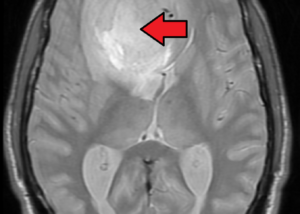
A person suffering from new-onset twitching of an eyelid may wonder if multiple sclerosis might be the cause – especially if this symptom is ongoing and aggressive.
We all experience an occasional eyelid flutter. Some individuals actually like the way this feels – kind of like a mini massage. But for others, it’s very annoying.
Before the advent of the Internet, people generally did not worry too much about this annoying symptom.
But with a worldwide network of information in response to a typed-question at our fingertips, millions of people are now googling this symptom and seeing search results that mention multiple sclerosis.
“MS does not usually cause sustained eyelid twitching,” says Mitzi J. Williams, MD, clinical neurologist with Morehouse School of Medicine, an MS specialist and clinical advisor for the Multiple Sclerosis Foundation.
“Fasciculations are usually a sign of lower motor neuron disease, meaning, the nerve dysfunction is with the peripheral nerves,” Continues Dr. Williams.
“MS is an upper motor neuron disease which means the nerve dysfunction occurs at the level of the central nervous system (the brain, spine and optic nerves).”
So though MS can cause symptoms involving vision, this doesn’t mean that the nerve that controls eyelid movement is necessarily included.
The optic nerve has absolutely nothing to do with eyelid movement.
The optic nerve receives visual stimuli incoming from the environment. It then sends that stimuli (in the form of an electrochemical impulse) to the occipital region in the back of the brain where these signals are interpreted – allowing us to see. We actually see with our brains.
“Eyelid twitching is more commonly a normal symptom that can be related to caffeine intake, alcohol or anxiety,” says Dr. Williams.
Additional Causes of Isolated Prolonged Eyelid Twitching
• Too much computer screen time or other type of visual strain such as sustained up-close viewing (e.g., threading a lot of needles, reading very tiny print).
• Rubbing an eyelid (upper or lower) or scratching it.
“It can be brief or last up to several weeks,” says Dr. Williams.
“With MS, sustained eyelid twitching can be associated with facial twitching and is called hemifacial spasm.”
In this case, the eyelid twitching is not an isolated event. It goes along with the spasms of other areas of the face.

Dr. Williams is author of “MS Made Simple: The Essential Guide to Understanding Your Multiple Sclerosis Diagnosis.” She is a member of the American Academy of Neurology.
 Lorra Garrick has been covering medical, fitness and cybersecurity topics for many years, having written thousands of articles for print magazines and websites, including as a ghostwriter. She’s also a former ACE-certified personal trainer.
Lorra Garrick has been covering medical, fitness and cybersecurity topics for many years, having written thousands of articles for print magazines and websites, including as a ghostwriter. She’s also a former ACE-certified personal trainer.
.









































